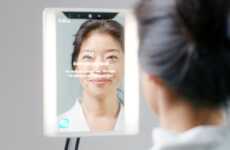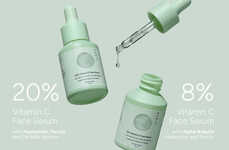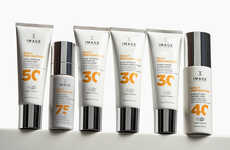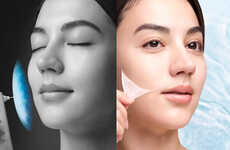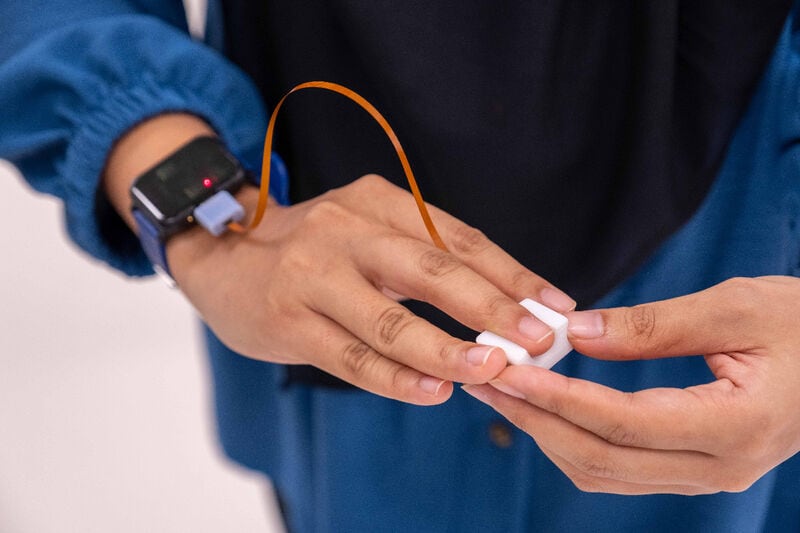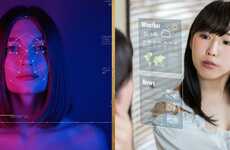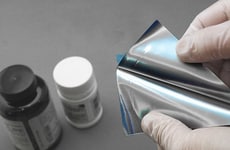
HapSense Helps Scientists Accelerate the Analysis of Cosmetic Products
Laura McQuarrie — April 23, 2024 — Fashion
References: pgsginnovation & ntu.edu.sg
Scientists' analysis of skincare and cosmetic products is now faster and more cost-effective thanks to HapSense, a patent-pending device in the form of a wearable skin sensor. This alternative to expensive skin-testing panels offers precise, objective and quantifiable measurements of tactile sensations, and it was made possible by collaborative efforts on behalf of the P&G Singapore Innovation Centre, Nanyang Technological University, Singapore (NTU Singapore) and the Agency for Science, Technology and Research (A*STAR.)
HapSense takes the guesswork out of skincare product development and it has the potential to add value to other applications. This wearable skin sensor is a cutting-edge innovation that could prove useful for testing surfaces and products in categories beyond skincare and cosmetics, including everything from fabric care and hair care to baby care and feminine care.
HapSense takes the guesswork out of skincare product development and it has the potential to add value to other applications. This wearable skin sensor is a cutting-edge innovation that could prove useful for testing surfaces and products in categories beyond skincare and cosmetics, including everything from fabric care and hair care to baby care and feminine care.
Trend Themes
1. Precise Wearable Technology - Advanced skin sensors like HapSense provide precise and quantifiable measurements of tactile sensations, revolutionizing product analysis across industries.
2. Multi-industry Applications - The versatility of HapSense makes it applicable not only in skincare and cosmetics but also in diverse sectors such as fabric care, hair care, baby care, and feminine care.
3. Collaborative Innovation Solutions - The collaboration behind HapSense sets a new standard for disruptive innovation by merging expertise from various fields to create a groundbreaking skin sensor device.
Industry Implications
1. Beauty & Personal Care - The beauty and personal care industry can leverage wearable skin sensors to enhance product development and offer more tailored solutions.
2. Textile & Fabric Technology - Textile and fabric industries stand to benefit from adopting advanced skin sensors like HapSense to improve the quality and sensory experience of their products.
3. Infant Care & Hygiene - Innovations in wearable skin sensors open up new possibilities for infant care and hygiene products, ensuring enhanced safety and user experience for parents and babies alike.
7.8
Score
Popularity
Activity
Freshness

